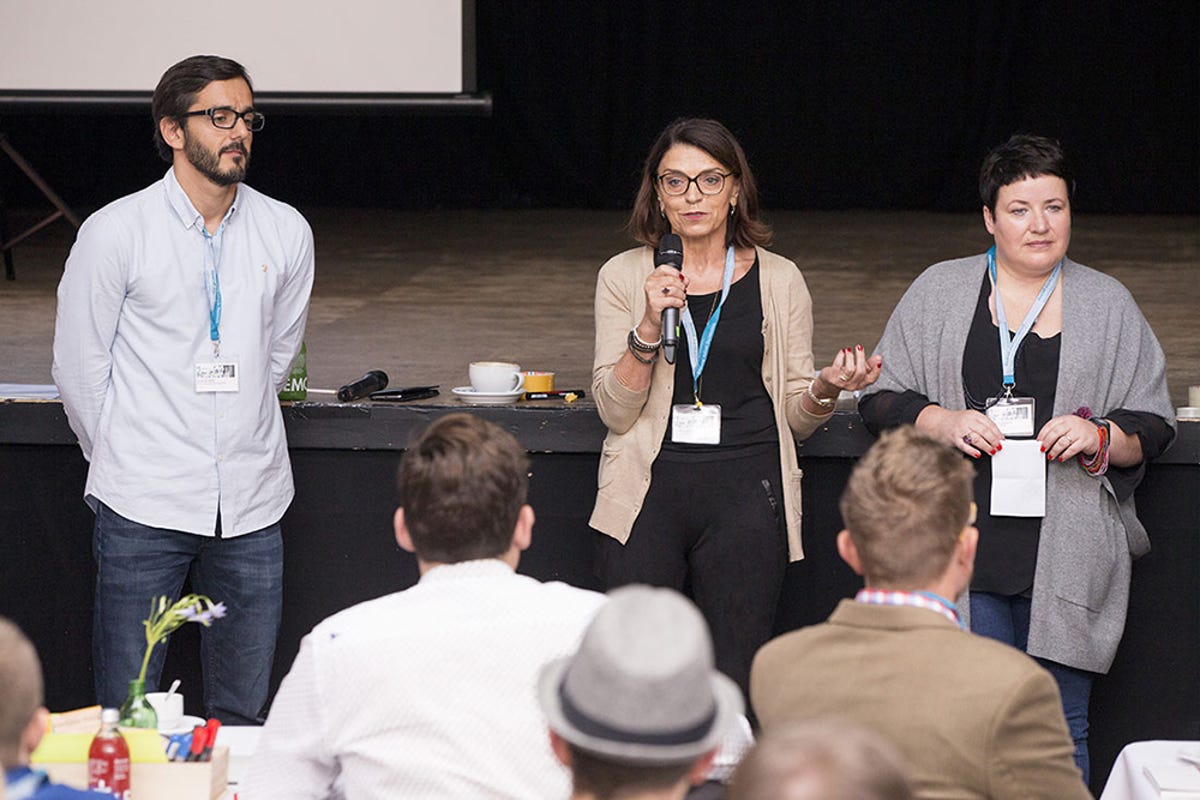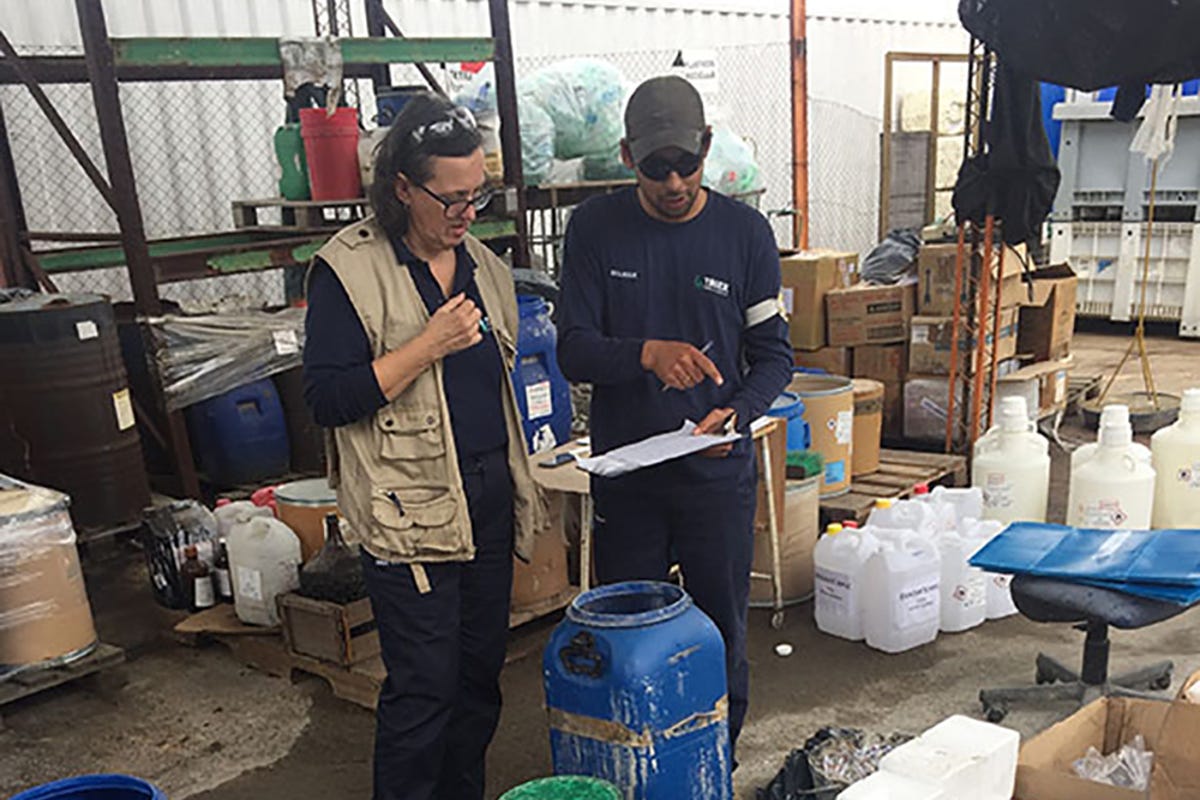2018
How do you know that your business is ready to expand?
Carola Schwank shares her advice to entrepreneurs looking to find the right organizational structure for their company.
By Carola Schwank - Head of Empowering People Network (EPN)
Presenting a business concept for expansion might appear as the most daunting task for a social entrepreneur. Especially if you are a woman coming from one of the remotest pockets of Indonesia.
From when she can remember, Tri Mumpuni, wanted to help her community. Puni, as she is called affectionately, is a member of our empowering people. Network that supports social entrepreneurs around the world. An agricultural scientist, she founded IBEKA, a renewable energy supplier in her homeland Indonesia. Her social enterprise has received global acknowledgement including from former US President Barack Obama at the Presidential Summit on Entrepreneurship. A globetrotter, Puni inspires entrepreneurs - sharing her trade secret that helped her enterprise springboard from rural Indonesia to the Asia Pacific and Africa. “It is pertinent to choose the right staff who can work passionately, encourage them to put their best on every project. This helps people trust your organization supporting it to ultimately scale”, says Puni.

Focus on your organizational structure before expanding
Speaking to achievers like Puni, I am more and more convinced of the importance of organizational development for enterprises to thrive in the long haul. Identifying and pledging to a social goal may seem to be the most important issue for your business. However, it is an easy decision when compared to realizing and sustaining it.
As Head of empowering people. Network, I have had opportunities to get an inside look into the various stages of a social entrepreneur’s journey. Surprisingly, I have found the significance of organizational development often discounted from the onset.
The first step before a startup even thinks about its growth phase is to asses and then assemble the different aspects of the venture. It is absolutely imperative to establish structures and processes that will ensure not only a seamless transition but also an effective running. I have often noticed social entrepreneurs caught off-guard by this reality. Sometimes they are so focused on improving and selling their innovations alongside fundraising, that they become myopic to internal requirements like decision-making models, delegation of responsibility or exploring future-oriented leadership approaches.
Simply copying supposedly ‘western best practices’ of structuring organizations will hardly work to break the vicious circle. Our network offers different ways and tools that help with leadership questions like employee recruitment and development, defining responsibilities and ensuring recognition. Alternative organizational models like Holacracy that focus on defined roles instead of inflexible functions, can be a good way to establish sustainable internal structures for enterprises that strive for social impact not only through the solutions and services they offer, but also as good and responsible employers.
One of our network members Ana Luisa Arocena also echoes this view. Her journey from a chemist to launching Uruguay’s first toxic waste tracking technology Triex has been that of trial and error. As she puts it: “Seventeen years after we founded our company, it is only now that we are in the process of organizing ourselves as a self-management organization.” A financial crunch in 2009 forced her to sell 70% shares to an Uruguayan engineering company. The ‘new’ conventional organizational structure posed challenges like non-committed employees, loss of a pioneering spirit and a disconnect from the community. Ana Luisa and her colleagues explored options looking to build a more horizontal and democratic structure. They took advantage of a government regulation that assists with development funds for cooperatives and self-management companies. Ana Luisa invited her employees to apply for the funds. “In February 2018, 10 among our 17 employees came together to establish a limited responsibility company and became owners of the 70% shares. Now we have a more closely knit structure - conducting weekly meetings with our partners. I think we are doing well”, Ana Luisa adds. Unusual and creative approaches often provide the key to sustainable solutions.

Learn to be a cog in the wheel
Founders may inadvertently fall victims to the phenomenon of ‘one man/woman army’ and key issues like sharing responsibilities and building proper internal structures go amiss. With their scope of work growing, founders should be able to delegate tasks!
Taking a leaf from Puni’s success story, my advice to entrepreneurs is to get human capital with the necessary competencies and acquaint them with the organization’s objectives and methods. Create a process chain to harness their fresh energies, then identify and retain the employees with a high level of commitment. The next step is to repurpose responsibilities, which in turn builds a bond between you, the captain, and your crew. At times, you need to master the art of ‘letting go’ and take yourself as a cog in the wheel - running seamlessly together with the team for a bump-free long journey. Openness and frequent feedbacks can also help improve efficiency and increase productivity.
Ultimately, finding the right organizational structure is an individual expedition and founders need to navigate through the various options before stumbling upon the most suitable one! To ease the process we have created a customised free manual SAMforSE for social entrepreneurs. The tool prompts an individual to enter their requirements and accordingly evaluates the apt business model. Startups in our network have used this along with personal coaching on identified challenges and have successfully cultivated their organizational development strategy.
For social entrepreneurs looking for international exposure, mentorship and collaboration, we are currently running a global competition - empowering people. Award 2019. We look forward to discovering, learning and unlearning with this year’s winners further facets of organizational development.

ABOUT THE AUTHOR :
CAROLA SCHWANK
Carola heads Empowering People Network (EPN)/Development Cooperation. She managed the first two empowering people. Awards, an international competition that identifies and promotes appropriate technologies that improve basic supply in developing regions. She has been building up the international empowering people. Network with her team since 2014. The network supports social entrepreneurs and impact inventors with a range of online and offline activities. Follow the Empowering people. Network on Facebook and Twitter.